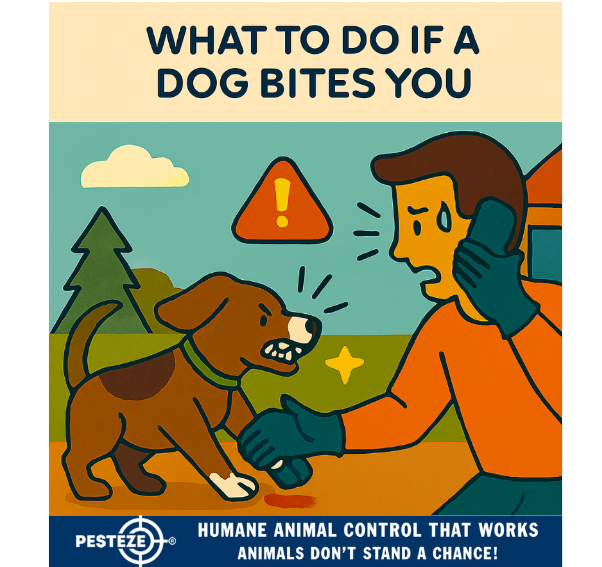WHAT TO DO IF A DOG BITES YOU

WHAT TO DO IF A DOG BITES YOU
SUMMARY
Dog bites can happen unexpectedly and range from minor scratches to serious wounds. Whether the bite comes from a familiar pet or a stray, knowing how to respond is crucial for preventing infection, reducing complications, and ensuring legal protection. This guide outlines the essential steps to take immediately after a dog bite, including first aid, medical care, and reporting procedures. Acting quickly and responsibly can protect your health and help prevent future incidents.
FEATURES
-
Clean the Wound Immediately: Wash with soap and water to reduce the risk of infection.
-
Stop the Bleeding Safely: Apply gentle pressure with a clean cloth or bandage.
-
Seek Medical Attention: Visit a doctor for deep wounds, bites on sensitive areas, or signs of infection.
-
Report the Incident to Authorities: Notify animal control or local health departments, especially if the dog is unknown.
-
Document the Bite Thoroughly: Take photos, note the time and location, and gather witness information.
-
Monitor for Rabies and Tetanus Risks: Ensure your vaccinations are up to date and follow medical advice on post-exposure treatment.
GUIDE DESCRIPTION
Being bitten by a dog is a serious event that requires immediate and informed action. Whether the bite is from your own pet or an unfamiliar dog, the steps you take afterward can significantly impact your recovery and legal standing.
Start by cleaning the wound thoroughly. Use soap and warm water to flush out bacteria. Even minor bites can become infected, so don’t skip this step. Avoid using hydrogen peroxide or alcohol, which can damage tissue.
Apply pressure to stop bleeding. Use a clean cloth or sterile bandage and elevate the area if possible. If bleeding doesn’t stop after 10 minutes, seek emergency care.
Medical attention is essential for deep bites, wounds on the face, hands, or feet, or if the dog’s vaccination status is unknown. Doctors may prescribe antibiotics, stitches, or recommend a tetanus or rabies shot depending on the situation.
Report the bite to local authorities. Animal control or health departments may need to investigate, especially if the dog is a stray or shows signs of illness. This helps prevent future attacks and ensures proper quarantine procedures if needed.
Document everything. Take clear photos of the wound, note the time and location, and collect contact information from witnesses. This documentation is vital for insurance claims or legal action.
Finally, monitor for symptoms of infection or illness. Redness, swelling, pus, or fever may indicate a problem. Follow your doctor’s instructions and keep an eye on your vaccination records.
By responding quickly and responsibly, you’ll protect your health and help ensure the safety of others in your community.
- Amy Chang


Comments 0